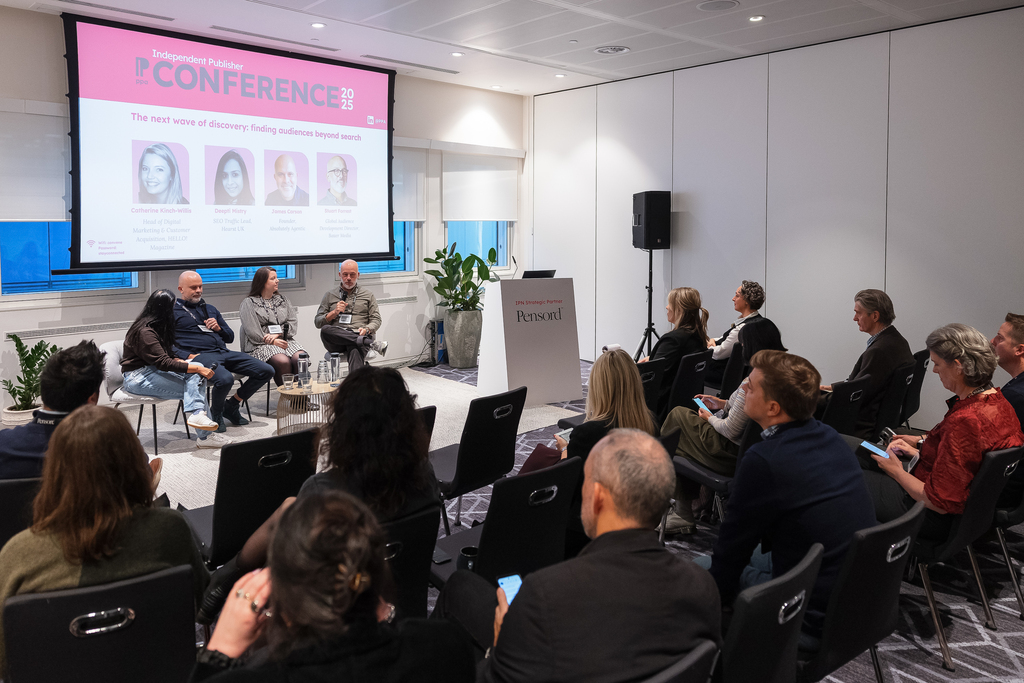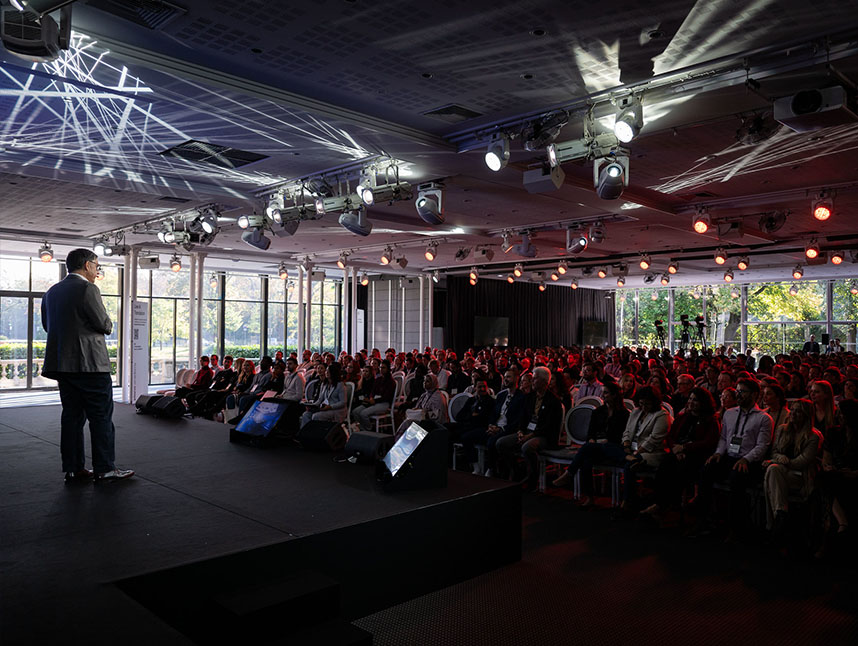Generation Z: How publishers can reach the younger generation
As the next generation of news consumers, Generation Z, the younger audience cohort, will play an important role for news producers over the long term. However, current research shows that their news experience is rarely optimal. This article sums up the opportunities that publishers have to reach the next generation.
For the younger target group, ideal news consumption takes place on mobile devices, via social media and, above all, in video format. But how can news producers specifically inspire young readers with content and reach them where they are - both today and in the coming years? In this article, you will find the most important findings of the "Next Gen News" report 2024, which examines the media usage behavior and habits of Generation Z, as well as other current research findings.
Relevance of the younger target group for media professionals
One characteristic of Generation Z (Gen Z) is that they are the first generation to have grown up entirely in the technology age (German Institute of Marketing). Born between 1995 and 2010, these people will be between 14 and 29 years old in 2024.
In the short term, it may seem more economically viable for news media to focus on older target groups. They have a higher income and purchasing power and can be better monetized through subscription models or advertising. However, the content produced often does not meet the needs of the next generation of news consumers. However, this younger target group plays a crucial role in the long-term sustainability of news media.
Decades of research show that young people are often a good indicator of broader societal changes. These include changes in information consumption, the use of technology and social norms. This has also been scientifically proven in the area of news: The "Reuters Institute Digital News Report" from 2012 showed that younger consumers accessed online news disproportionately often via smartphones and social media. The report from last year, 2023, shows that this is now the norm across all age groups. Adapting to the needs and behaviors of the younger target group can therefore bring significant benefits for news producers.
If the younger target group is neglected in news production, a gap is created that can have a negative impact on the entire industry. To prevent this, this gap should be closed in the next five to six years, according to the "Next Gen News" report.
Media usage behavior of the younger target group
The younger target group aged 15 to 24 prefers social media as their most frequently used platform for news consumption. Consumption mainly takes place via messaging apps, video platforms and podcasts. This was the result of a study conducted in 2023 in all 27 EU countries with respondents aged 15 and over who provided information on their weekly news platform usage behavior(Statista). The "Reuters Institute Digital News Report" 2023 also confirms that social media is the main source of news for 18 to 24-year-olds. In addition, the direct use of news platforms is decreasing in this age group.
The "Next Gen News" report divides the media usage behavior of the younger target group into four aspects based on the data collected:
- Smartphone centrality
The basis for the media usage behavior of the younger target group is their growth with smartphones. These are used for work as well as for learning and entertainment.
- Critical examination of sources
Generation Z is significantly more critical when it comes to the credibility of sources. Newspapers and brands as sources of information do not guarantee unquestionable trust for this target group. Instead, they actively consume content from people they know or think they know, usually social media influencers and content creators.
- Social exchange and perspectives
To understand news content, Generation Z relies on the personal opinions of other users. By exchanging ideas with others, including in the form of comments on social media, the younger target group finds explanations and different perspectives on topics that are discussed privately.
- Use of diverse sources of information
Another characteristic of this target group is the search for information via various media. These include social media, push notifications, private chats and news aggregators. The search for information goes beyond conventional methods and also includes social media platforms such as TikTok and Instagram.
News media have various ways of meeting the needs of the younger target group and creating appealing content for them.
Generation Z trusts people and personal brands
The younger generation assesses the credibility of news sources according to more complex parameters than older generations. While reputation, experience, awards and journalistic standards of news producers play an important role for older generations, Generation Z prioritizes these factors less. According to the "Next Gen News" report, they are instead increasingly looking to connect with social media creators and personal brands that they see as trustworthy sources.
This development offers media professionals new approaches and opportunities to address the younger target group. One possibility is collaboration between traditional news producers and independent content creators. Working with younger and more diverse journalists who express themselves authentically and with whom the target group can identify creates new points of contact.
The "Next Gen News" report highlights the following opportunities for directly addressing the younger target group:
- New vertical content or series presented by people with a personal brand or existing level of recognition or popularity.
- Preparation of podcasts or newsletters by specialist journalists with particular expertise.
- Introducing the journalists who write stories to create closeness.
- Use of popular content formats on social media on your own websites and in apps to meet Generation Z preferences. This can create brand affinity, direct relationships with the younger target group and loyalty.
At the same time, media producers should consider potential disadvantages:
- Compliance with journalistic standards is also essential in new formats.
- Individuals in focus may experience negative consequences such as online hate and insults. These employees therefore need support and, if necessary, training.
- Potential misinformation on social media must be addressed and excessive reliance on a platform must be avoided.
Create content that the younger target group can identify with
For Generation Z, the presentation of content is particularly important - how the tone, language and format of a story are designed. According to the "Next Gen News" report, this target group prefers easily digestible content that is nevertheless informative.
- Information should be easy to understand without being condescending.
- Summaries or timelines provide various access points to content, which increases reach and reduces message avoidance.
- Content should be easily shareable to increase reach
Content that gives Gen Z hope and encourages action
Negative and sensationalist reporting increases the risk of emotional fatigue among consumers and therefore news avoidance. According to the "Next Gen News" report, the younger target group prefers news that is solution- and action-oriented. Content should explain how the events described affect the target group and their community and how they can react to them. This type of reporting can be implemented particularly well in local news. The younger generation also prefers constructive journalism that shows possible future paths when it comes to social issues where individual readers have few options for action.
Instead of focusing exclusively on "hard news", Generation Z also appreciates "soft news" and infotainment, without these being presented as worthless or unimportant.
7 key news values for Generation Z
Seven fundamental news values for Generation Z were defined at this year's World News Media Congress in Copenhagen. These are consistent with and complement the findings of the "Next Gen News" report described above.
The following values have been defined and provide guidance for media professionals:
- Education: News helps Generation Z learn more about and understand relevant topic
- Empowerment: News encourages the younger generation and provides tools to take action based on informed decisions
- G-local: News creates a connection between global events and local influence and shows how young people are influenced locally by global events and vice versa.
- Humanity: Through personal experiences that elicit empathy, compassion, and inspiration, messages convey a diverse presentation of events
- Impact: News reports on events that affect numerous people and influence both readers and participants.
- Objectivity: Unbiased, fact-based news is presented from various perspectives.
- Timeliness: News shows the latest news and focuses on current events.
Conclusion
Generation Z is an important target group for the long-term sustainability of news media. Although it may be tempting in the short term to focus on older, economically stronger target groups, it is essential not to neglect the needs and media usage behavior of the younger generation.
The "Next Gen News" report suggests that the results, which are based on surveys of a very young target group, could also be representative of a broader target group in the future. Even if the behavior and preferences of the young target group change over time and adapt to the patterns of previous generations, news producers should waste no time in building relationships with this target group.
The younger target group has significantly different consumption habits and a critical attitude towards traditional news sources. This opens up new opportunities for the media industry. Promising approaches include collaborations with content creators and the development of authentic and appealing content. To effectively address Generation Z, media creators should use innovative formats and narrative styles that are easy to understand, informative and shareable. The focus should be on constructive and solution-oriented messages that offer hope and incentives for action.
By adapting to the preferences of Generation Z, news media can not only increase their reach and relevance, but also build an engaged and loyal readership for the future.
We are happy to support you on your digital journey. Contact us for more information on how Purplesupports publishers in their digital transformation.






%201.svg)











